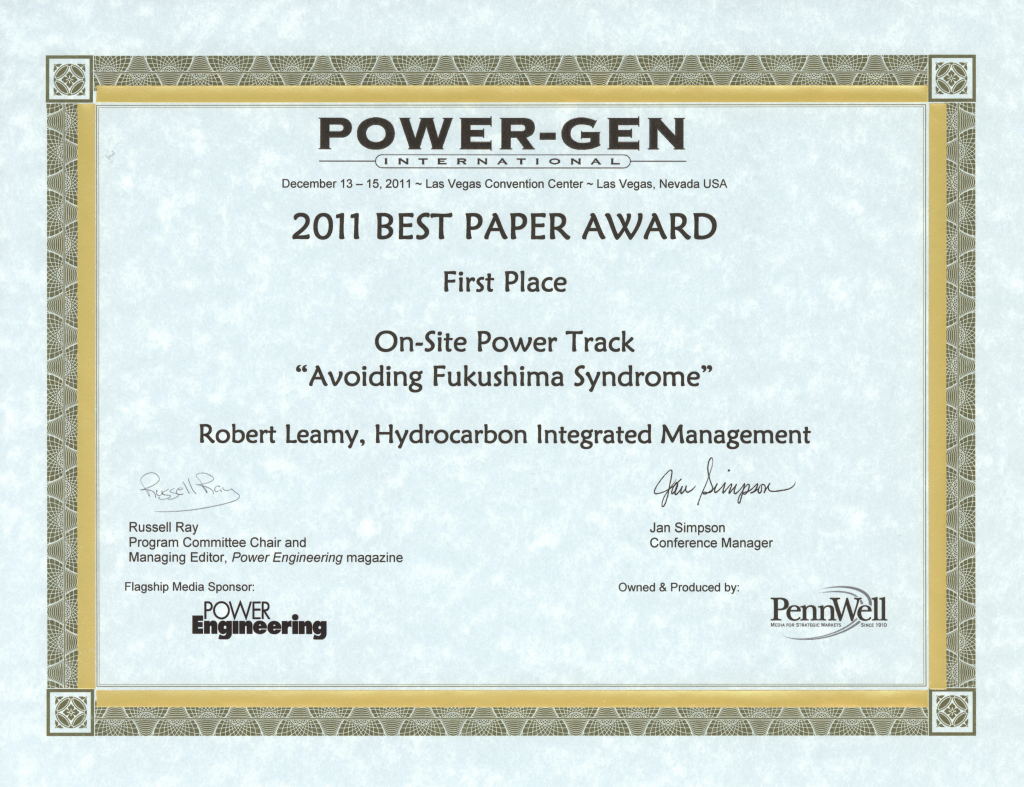DIESEL PROBELM SOLVED
Scientifically Find the Problem, Scientifically Fix it, Scientifically Prove It
Each of the above samples were taken AFTER competitors "polished" the diesel. Expect Better.
Worlds of innovation
Robert Leamy’s diesel fuel research has been focused on the Latent Hazards in stored diesel fuel as a result of new refining techniques as well as the federally approved addition of biodiesel into the common diesel fuel supply. Ongoing field research along with his diesel laboratory work have combined to establish his expertise as he has worked with other leading researchers and inventors to create actionable solutions for challenges faced by facilities that rely on stored diesel. Organizations benefitting from Robert’s publications and/or educational presentations include AFCOM, PowerGen, APCO, NENA, CBRE and JLL.
What you don't know can shut your facility down
Calling Renewable Diesel a “drop-in ready fuel” is not an accurate statement. With proper maintenance protocols however, it will serve the facility industry well. This training educates how to implement Protective Maintenance (ProTen) which must include: 1) changing protocols to laboratory analysis with specific tests that are consistent with biodiesel lifecycles, not petrodiesel lifecycles – with specific applicability to long term storage; 2) EPA approved formulas introduced to create hydrophobic conditions throughout the fuel supply; 3) Mechanical/Chemical remediation which must include conversion of entrained water molecules to a solid and removed as particulate and removal/recommission practices with additization of hydrophobic performance stability and lubricity enhancers. This ProTen Protocol reduces NOx, Particulate and Opacity emissions from ALL backup generators while certifying full compliance with NFPA 110 and FCC 47 CFR regulatory compliance language as it applies to stored diesel fuel and emergency backup power generation.

decades of award winning research
Renewable Fuels: Maintenance Protocols directly linked to determining if they are a Reliability Assets or Liabilities in long term storage.
Renewable fuels such as B-5, B-20 and R-99… are these fuels Reliability Assets or Liabilities to backup power generation? Conflicting information coming from regulatory bodies, manufacturing representatives and maintenance organizations can stymie Reliability Centered Maintenance decisions. Do you understand your diesel laboratory analysis report? Does your laboratory data help you ensure reliability or just verify the presence of diesel? Has your FM practice moved past antiquated “fuel polishing” to a scientific diesel remediation?
How do the mandated or chosen levels of biofuels in bulk storage applications affect the industry fuel maintenance lessons learned from significant events like hurricane Katrina or the Fukushima meltdown? What has caused the increase in stratified entrained water as well as micro-entrained particulate in stored fuel environments… and how do you mitigate their compromise to reliability?
This candid, case study based presentation invokes questions about your diesel maintenance program. FCC 47 CFR, FCC 40CFR, NFPA 25, NFPA 110 all require regulatory compliance regarding diesel fuel. If your diesel maintenance program doesn’t assure emergency preparedness or regulatory compliance, then truly… what’s the point of having one? Is reliability centered stored diesel maintenance achievable? YES!
- Why Renewable fuels can be either an asset or a liability in long-term storage environments.
- What are the specific maintenance protocols used to mitigate issues specific to renewable fuels.
- How protective annual maintenance can actually prolong renewable fuel storability.
